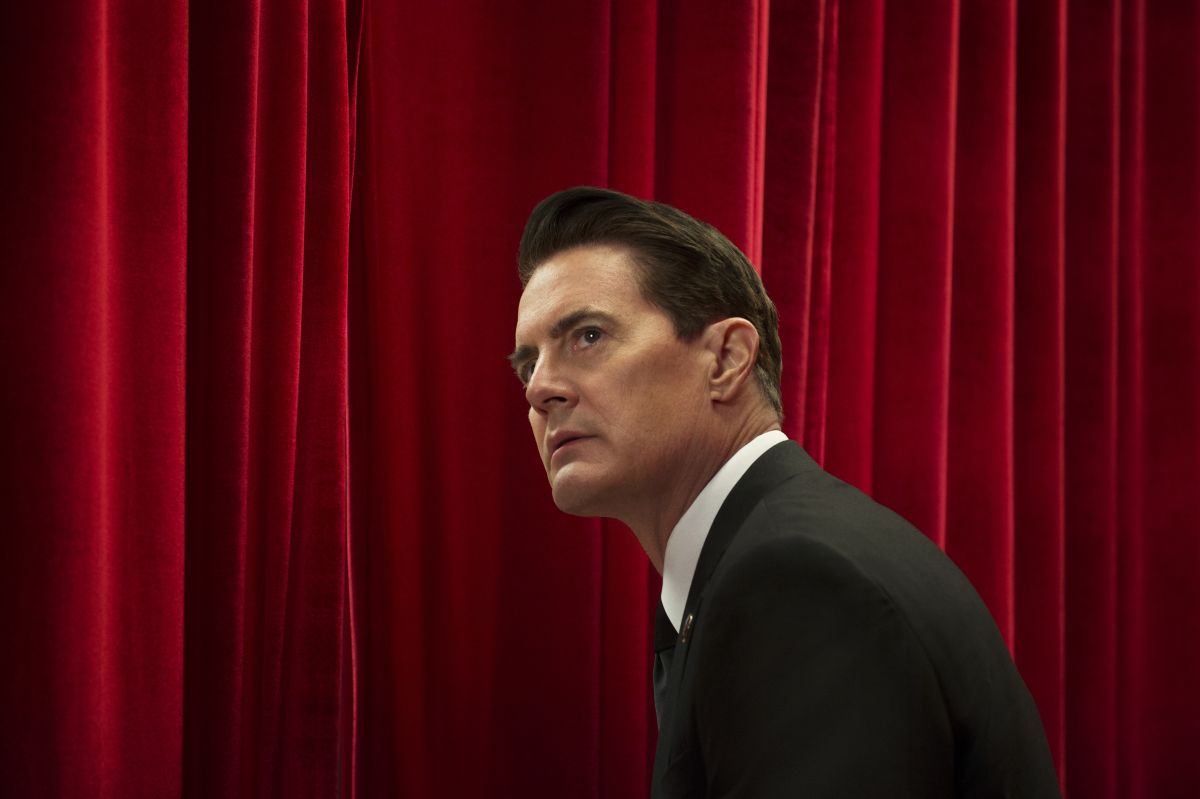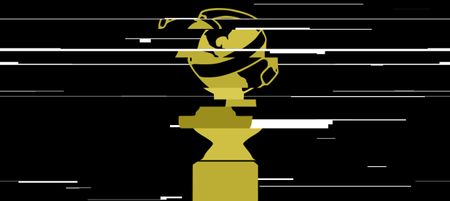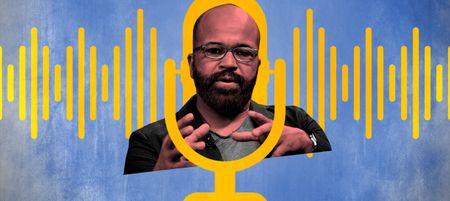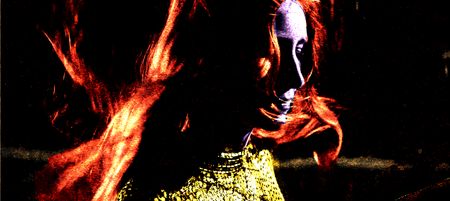Why America desperately needs the Twin Peaks revival right now
In the Black Lodge of the Trump years, we need Agent Cooper's resilient humanity


"I'll see you in 25 years." When Laura Palmer speaks these words to Special Agent Dale Cooper in the deep of a dream, she isn't just delivering one of Twin Peaks' inscrutably creepy catchphrases. She is, however unintentionally, asserting the show's long-term prescience. In the years since Laura's blue-hued, surf-battered body became a pop cultural icon, the Log Lady inspired an entire sub-industry on Etsy, and the image of Agent Cooper's handsome face, streaked with thick, catsupy blood, closed out TV's most seminal series finale, the show's resonance has rippled and swelled. Though Twin Peaks' voluptuous surreality and labyrinthian mythos have kept many a fan forum and Reddit thread sleuthing away, the show's real legacy — the reason it has forever shaped its medium and entranced fresh generations of loyal viewers — is its humanity. That humanity makes the show even more necessary now that we have stepped, perhaps irrevocably, into the Black Lodge of the Trump years.
When Twin Peaks debuted in April 1990, it wed the trippy tropes of the nighttime soap with the familiar beats of the crime procedural: A valiant and brilliant lawman comes to a slice of wholesome (but only on the postcards) Americana to seek the killer of a beautiful and beloved young girl, who was, in the end, undone by her secrets. The revelation that Laura's father Leland, possessed by the demonic entity known as Killer BOB, had, for years, systematically raped her, before finally stabbing her to death in a filthy boxcar, is sickly rich with symbolic complexity. BOB is a palindrome, the same word spelled backwards; just as the doppelganger, the possessed or shadow-self, is still a version of the real self, however twisted. In the show, BOB is an avatar for the Id, the darker, crueler parts of a person, emblematic of all the forces that could compel a man to violate his own child. He's everything we think we could never be, and the most unfathomable aspects of who we really are.
The very concept of BOB — that inside the body of a mild-mannered, middle-aged man, or, eventually, our kind-hearted, chisel-jawed hero, rages an ungovernable evil — works in a broader way as well: It clicks its teeth at the façade of a sweet little town filled with good old-fashioned folks who willfully ignore their neighbors' barely suppressed desperation (when they aren't, of course, causing said desperation). BOB is defined only by his insatiable urge to glut his rage and his need, even (or, perhaps, especially) if he gets to hurt someone weaker: BOB could be an America that cloaks itself in post-war nostalgia, and calls itself "great again," even as it strips its citizens of their health care, their voting rights, and their freedoms. It's fitting, then, that BOB comes back to American TV six months after Nov. 9, when so many of us woke up quite literally wondering what had possessed our neighbors to vote such chaos into power. The scene of Leland Palmer, savage with grief, clinging to the coffin of the daughter he butchered as it descends into the dirt, is, in and of itself, a good encapsulation of what it feels like to be American these days. Twin Peaks may not be a deliberately political show, but its revival arrives at a time when only a kind of gonzo surrealism can capture our current reality.
Subscribe to The Week
Escape your echo chamber. Get the facts behind the news, plus analysis from multiple perspectives.

Sign up for The Week's Free Newsletters
From our morning news briefing to a weekly Good News Newsletter, get the best of The Week delivered directly to your inbox.
From our morning news briefing to a weekly Good News Newsletter, get the best of The Week delivered directly to your inbox.
Though Twin Peaks' unfettered weirdness has, all too often, been frothed into mere quirk or camp — all cardigan-clad old women solemnly carrying logs; or fish in percolators; or Dale Cooper's love of coffee "black as moonlight on a moonless night" — that weirdness has always expressed some very brutal, very profound truths. Even today, the images of Josie Packard's soul being sucked into a wooden chest of drawers, or Laura Palmer's white-eyed scream of rage inside the Red Room suggest that there are kinds of pain that even death can't quell. Twin Peaks didn't just revel in the sublime grotesquerie of these moments, or in Dale Cooper's various forays into the Red Room — it used them to mine deeper emotional territory, and, on a more technical level, to propel the narrative. This blueprint for artfully infusing strangeness into a show's DNA gave us the architecture for Tony Soprano's assorted dream sequences and Don Draper living his life under another man's name; Rust Cohle's time-looped quest for Carcosa and Kevin Garvey singing for his soul in the karaoke lounge of a cheap motel. Twin Peaks lived on in The X-Files' embrace of the prime-time paranormal; in Breaking Bad's acid-splashed flash-forwards; and even in teen soaps like Riverdale.
Twin Peaks' return, on its own terms, to reckon with its legacy as the spiritual godparent of Prestige TV™ is compelling because it begs the obvious question of whether this third season will lean into the freedoms afforded by our far more permissive, explicit times (not to mention a switch to premium cable) and try to effectively "out-weird" itself and its descendants — and, in doing so, cauterize the sad, delicate strangeness that made it so special. But most fans will tune in again for the answer to one essential question (and no, it's not "How's Annie?"): What happened to Dale Cooper since we watched his body walk out of the Black Lodge, knowing that there is a demon roiling inside his Boy Scout smile, a killer with all the powers that come in carrying a badge and a gun? If the story of the Palmer family gives the show its tar-hearted pathos, and the shucks-howdy hypocrisy of the town itself is the show's bite and wit, then Agent Cooper embodies a rare and precious spirit of compassion. He is no anti-hero, curdled and wry like the Drapers and Cohles who followed him; if anything, he's an anti-BOB. If BOB represents the very worst in a person, or a place, then Cooper's bright-eyed inquisitiveness and unforced acceptance of everyone he meets reflects the very best.
Though he arrives in Twin Peaks as the elite lawman, Cooper shows deference and openness toward his townie counterpart, Sheriff Harry S. Truman; he listens to Truman's insights about the townspeople, and respectfully explains his own unconscious, pseudo-Buddhistic methods of deduction — not only to Truman, but to the entire Sheriff's department, down to the loopy secretary (unlike his counterpart, forensic scientist Albert Rosenfield, who wastes no time getting high-falutin'). There's no cynicism or touristy holier-than-thou in Cooper's love for Twin Peaks; and, rewatching the series as so many "Dispatches from Trump Country"-style thinkpieces clutter our inboxes, his rhapsodies about Douglas Firs, diner coffee, and the virtues of his new acquaintances feel almost jarring in their earnestness. Cooper regards the log-town life in the same way he embraces Tibetan philosophy — he is a thoughtful observer, and appropriately reverent when he engages (before he explains his deductive process, he laments "the suffering of the Tibetan people"); in this regard, he's the very epitome of a Good Liberal.
However, Cooper's openness runs along parallel currents: He is also the epitome of all-American maleness, bestowed with a white-bread kind of classic handsomeness that only amplifies his natural privilege. Yet Cooper doesn't coast on that privilege; he befriends the oddballs (one of the best visuals the show has ever given us is that of Cooper, the man who could ask any girl to the dance, sitting in the bar next to the Log Lady, in all her rumpled, crabbed grandeur, as they sip their drinks) and champions the weak and the broken like a trenchcoated Galahad. He never judges Laura Palmer for being "an imperfect victim," seeking refuge in the oblivion of hard drugs and sex-for-pay (and, to its great credit, the show never does either); he also serves as a shaman-of-sorts during Leland Palmer's death, holding the terrified man in his arms, hearing his final confession, and imploring him to "look to the light."
But even this natural goodness is not enough to save Cooper from the kaleidoscopic vortex of the Black Lodge, the place "of almost unimaginable power, chock full of dark forces and vicious secrets ... this hidden land [would] offer up a power so vast that its bearer might reorder the Earth itself to his liking." Even a noble, guileless man like Cooper can't help but run away from this darkness — just like anyone who has ever been comfortable or privileged can't help but run from the vicious secrets of American history. It's a Lynchian bit of synchronicity, then, that the prolonged ramp-up to Twin Peaks season three coincided with the 2016 election and the early days of the Trump presidency — our national equivalent of the Black Lodge, the place that trapped us because we faced that "hidden land" of long-festering racism, misogyny, blunt-tongued anti-intellectualism with imperfect courage. Like Cooper, we thought that we were too gifted, too good, to be defeated. We laughed it off, thought it wouldn't happen here. And now, we live in a doppelganger of a country — one nation under BOB.
The Cooper who walks out of the Black Lodge may still be BOB-possessed, or finally released to contend with the BOB-wrought carnage after a 25-year sentence in neon purgatory. Either way, he will be older, sadder, scarred — though we can only hope that, at some point, he will be capable of his familiar kindness. The great mystery of the Twin Peaks revival can't be encapsulated in a single question like "Who killed Laura Palmer?" — it will be the question of human frailty and resilience. And it's why, unlike so many of the other reboots and revivals (here's looking at you, Will and Grace), this return to Twin Peaks feels so vital, and so right, right now.
Sign up for Today's Best Articles in your inbox
A free daily email with the biggest news stories of the day – and the best features from TheWeek.com
Laura Bogart is a featured writer for Salon and a regular contributor to DAME magazine. Her work has appeared in The Atlantic, CityLab, The Guardian, SPIN, Complex, IndieWire, GOOD, and Refinery29, among other publications. Her first novel, Don't You Know That I Love You?, is forthcoming from Dzanc.
-
 What is Barack Obama's net worth?
What is Barack Obama's net worth?The Explainer Royalties from book sales continue to drive the former president's financial portfolio
By David Faris Published
-
 'Do we really need another mountain named McKinley?'
'Do we really need another mountain named McKinley?'Instant Opinion Opinion, comment and editorials of the day
By Justin Klawans, The Week US Published
-
 Trump’s military makeover: fewer rules, more violence
Trump’s military makeover: fewer rules, more violenceIN THE SPOTLIGHT The president and Secretary of Defense Pete Hegseth have begun dramatically rewriting the guidelines for armed forces' operations
By Rafi Schwartz, The Week US Published
-
 Walter Isaacson's 'Elon Musk' can 'scarcely contain its subject'
Walter Isaacson's 'Elon Musk' can 'scarcely contain its subject'The latest biography on the elusive tech mogul is causing a stir among critics
By Theara Coleman Published
-
 Welcome to the new TheWeek.com!
Welcome to the new TheWeek.com!The Explainer Please allow us to reintroduce ourselves
By Jeva Lange Published
-
 The Oscars finale was a heartless disaster
The Oscars finale was a heartless disasterThe Explainer A calculated attempt at emotional manipulation goes very wrong
By Jeva Lange Last updated
-
 Most awkward awards show ever?
Most awkward awards show ever?The Explainer The best, worst, and most shocking moments from a chaotic Golden Globes
By Brendan Morrow Published
-
 The possible silver lining to the Warner Bros. deal
The possible silver lining to the Warner Bros. dealThe Explainer Could what's terrible for theaters be good for creators?
By Jeva Lange Last updated
-
 Jeffrey Wright is the new 'narrator voice'
Jeffrey Wright is the new 'narrator voice'The Explainer Move over, Sam Elliott and Morgan Freeman
By Jeva Lange Published
-
 This week's literary events are the biggest award shows of 2020
This week's literary events are the biggest award shows of 2020feature So long, Oscar. Hello, Booker.
By Jeva Lange Published
-
 What She Dies Tomorrow can teach us about our unshakable obsession with mortality
What She Dies Tomorrow can teach us about our unshakable obsession with mortalityThe Explainer This film isn't about the pandemic. But it can help viewers confront their fears about death.
By Jeva Lange Published
